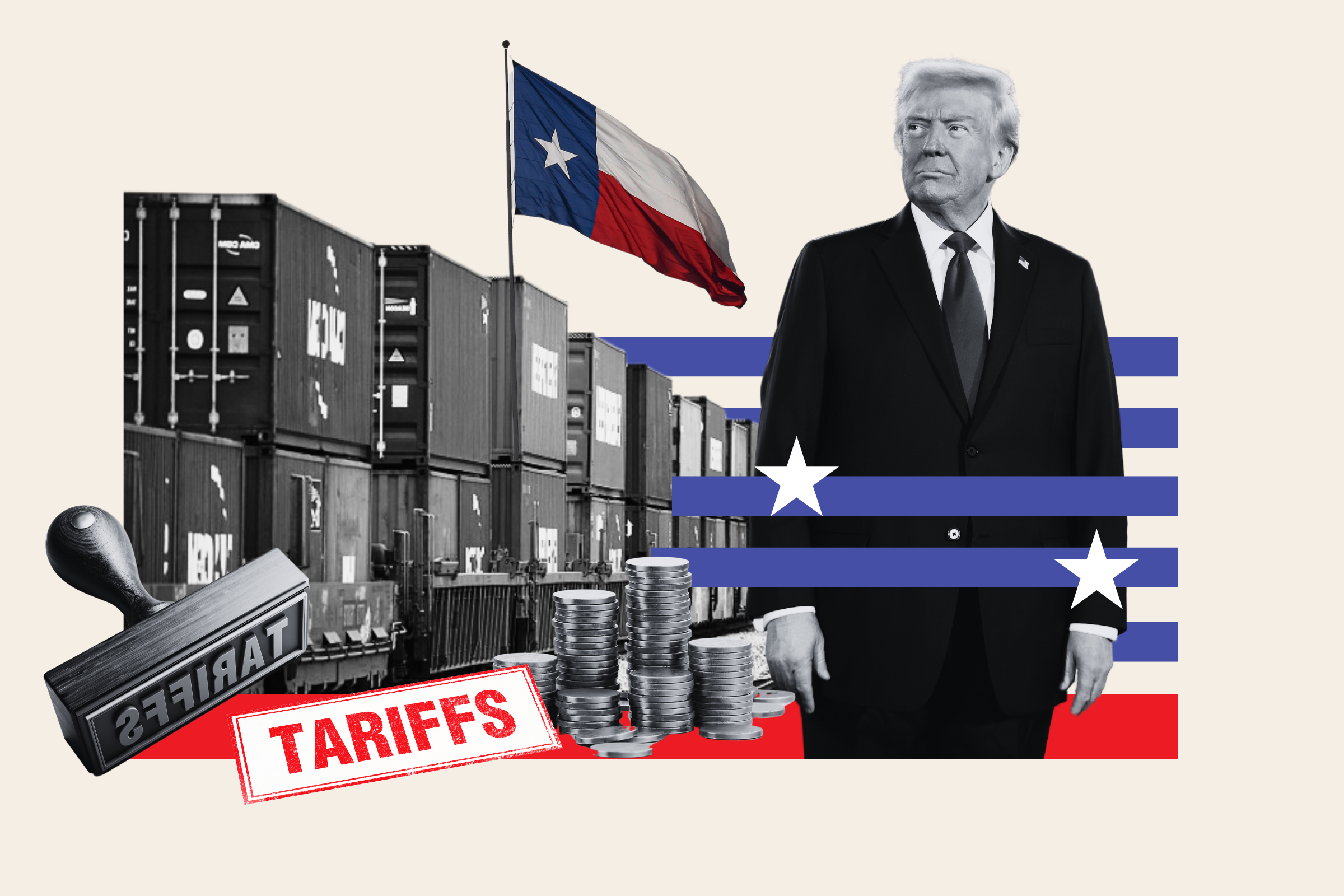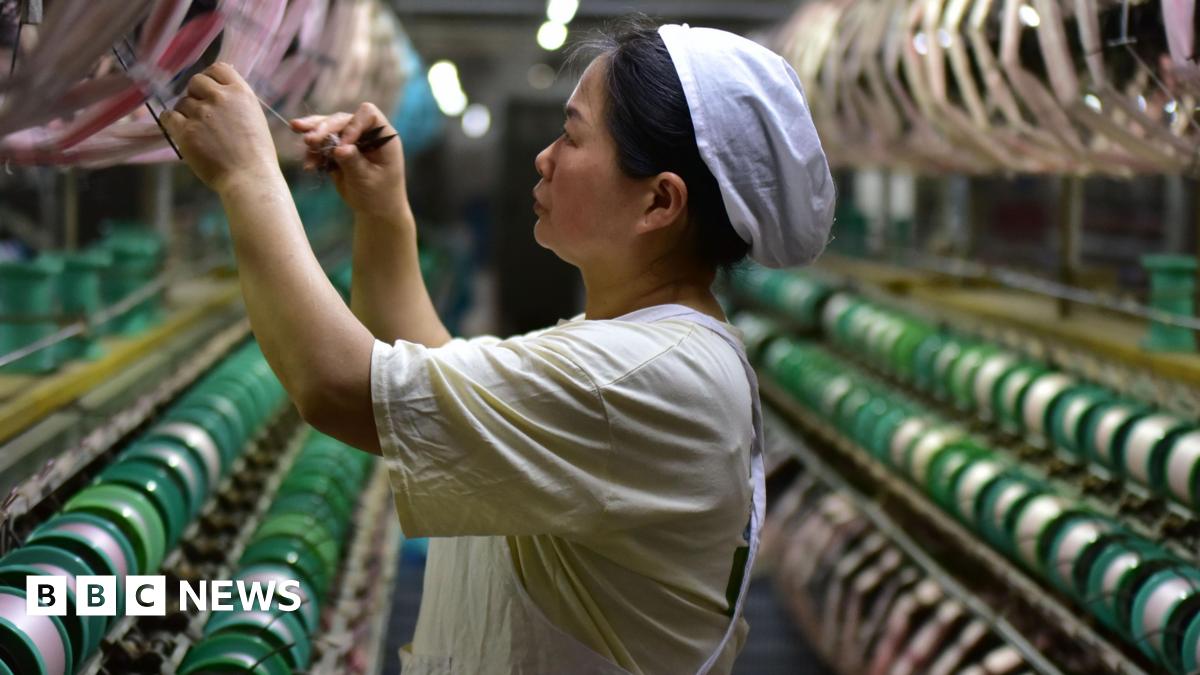How Tariffs Affect Global Trade And Supply Chains

Welcome to your ultimate source for breaking news, trending updates, and in-depth stories from around the world. Whether it's politics, technology, entertainment, sports, or lifestyle, we bring you real-time updates that keep you informed and ahead of the curve.
Our team works tirelessly to ensure you never miss a moment. From the latest developments in global events to the most talked-about topics on social media, our news platform is designed to deliver accurate and timely information, all in one place.
Stay in the know and join thousands of readers who trust us for reliable, up-to-date content. Explore our expertly curated articles and dive deeper into the stories that matter to you. Visit Best Website now and be part of the conversation. Don't miss out on the headlines that shape our world!
Table of Contents
How Tariffs Affect Global Trade and Supply Chains: A Complex Web of Economic Impacts
Tariffs, taxes imposed on imported goods, are a powerful tool used by governments to influence international trade. However, their impact extends far beyond simple price increases, significantly affecting global trade and intricate supply chains in unforeseen ways. Understanding these effects is crucial for businesses, consumers, and policymakers alike.
The Direct Impact: Higher Prices and Reduced Imports
The most immediate consequence of tariffs is increased prices for imported goods. This is because the tariff is added to the cost of the product, making it more expensive for consumers. This price hike can lead to reduced demand for imported goods, benefiting domestic producers who now face less competition. However, this benefit is often limited and can be offset by other factors.
Ripple Effects on Supply Chains:
The effects of tariffs rarely stay localized. Global supply chains are complex networks, and a tariff imposed on one component can disrupt the entire chain. Consider a simple example: a tariff on imported steel used in automobile manufacturing. This tariff increases the cost of steel, making cars more expensive. This price increase can then affect the demand for cars, impacting not just automakers but also related industries like parts suppliers and dealerships. The ripple effect can be substantial and unpredictable.
Retaliation and Trade Wars:
One of the most significant risks associated with tariffs is the potential for retaliatory measures. If one country imposes tariffs on another's goods, the targeted country may respond with its own tariffs, escalating into a trade war. This tit-for-tat exchange can severely disrupt global trade, creating uncertainty and instability for businesses. The recent US-China trade war serves as a prime example of the devastating consequences of such actions. [Link to an article about the US-China trade war]
Impact on Consumers:
While tariffs may protect some domestic industries, consumers ultimately bear the brunt of the increased prices. This can lead to reduced purchasing power, particularly for low-income households who spend a larger portion of their income on essential goods. The overall economic impact on consumers can be significant, potentially slowing down economic growth.
Beyond Prices: The Broader Economic Consequences
The effects of tariffs extend beyond simple price adjustments. They can:
- Reduce overall trade volume: Higher prices and uncertainty discourage international trade, leading to reduced economic activity.
- Distort market efficiency: Tariffs interfere with the natural allocation of resources, potentially hindering innovation and productivity growth.
- Increase bureaucratic burdens: Navigating tariff regulations and paperwork can be costly and time-consuming for businesses.
- Hurt developing countries: Developing nations often rely heavily on exports, and tariffs can severely damage their economies.
Navigating the Complex Landscape:
Understanding the intricate effects of tariffs is crucial for businesses engaging in international trade. Businesses need to carefully analyze the potential impact of tariffs on their supply chains, adjust their strategies accordingly, and advocate for policies that promote free and fair trade. This might involve diversification of suppliers, exploring alternative sourcing options, or lobbying for tariff reductions.
Conclusion:
Tariffs are a complex economic tool with far-reaching consequences. While they may offer short-term benefits to specific industries, their negative impacts on global trade, supply chains, and consumer welfare often outweigh the advantages. A balanced approach that prioritizes free and fair trade is essential for long-term economic prosperity. [Link to a report on the effects of tariffs on global trade]
Keywords: Tariffs, Global Trade, Supply Chain, International Trade, Trade Wars, Economic Impact, Import Taxes, Protectionism, Free Trade, Globalization, Consumer Prices, Economic Growth, Retaliation.

Thank you for visiting our website, your trusted source for the latest updates and in-depth coverage on How Tariffs Affect Global Trade And Supply Chains. We're committed to keeping you informed with timely and accurate information to meet your curiosity and needs.
If you have any questions, suggestions, or feedback, we'd love to hear from you. Your insights are valuable to us and help us improve to serve you better. Feel free to reach out through our contact page.
Don't forget to bookmark our website and check back regularly for the latest headlines and trending topics. See you next time, and thank you for being part of our growing community!
Featured Posts
-
 First Time Homebuyers Guide 5 Mortgage Strategies
Apr 22, 2025
First Time Homebuyers Guide 5 Mortgage Strategies
Apr 22, 2025 -
 Gatwick Airport Delays Passengers Face Ongoing Disruption
Apr 22, 2025
Gatwick Airport Delays Passengers Face Ongoing Disruption
Apr 22, 2025 -
 Global Trade Fallout Chinas Response To Trump Tariff Appeasement
Apr 22, 2025
Global Trade Fallout Chinas Response To Trump Tariff Appeasement
Apr 22, 2025 -
 El Salvador Negocia Canje De Prisioneros Con Venezuela Deportados Estadounidenses Involucrados
Apr 22, 2025
El Salvador Negocia Canje De Prisioneros Con Venezuela Deportados Estadounidenses Involucrados
Apr 22, 2025 -
 Increased Security Prison Staff Push For Authorization Of Stun Guns
Apr 22, 2025
Increased Security Prison Staff Push For Authorization Of Stun Guns
Apr 22, 2025
